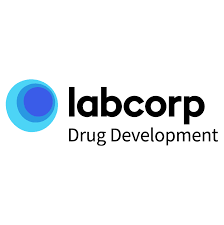Quest settles with Ravgen in DNA testing patent trial after $272 million Labcorp verdict
- IP News Bulletin
- Oct 8, 2022
- 3 min read
On September 23, 2022 biotech company Ravgen Inc won a $272 million patent verdict against Laboratory Corporation of America in Waco, Texas, in the first trial in a series of Ravgen lawsuits against major diagnostics companies.
According to a spokesperson, the jury determined that Labcorp's tests infringe on a Ravgen patent related to prenatal testing for genetic disorders using foetal DNA found in the mother's bloodstream and awarded Ravgen the full amount of damages sought.
The verdict for Ravgen, based in Columbia, Maryland, comes less than three weeks before the company is scheduled to go to trial in California in a related case against Quest Diagnostics.
The trial, which concerns Quest's QNatal Advanced tests, is set to begin Oct. 11 in federal court in Los Angeles. Quest and its attorneys did not respond immediately to a request for comment on the Labcorp verdict or the upcoming trial on Monday.
A spokesperson for Labcorp, based in Burlington, N.C., said Monday that the company was disappointed with the verdict and was considering its appeal options. The company also stated that the Patent Trial and Appeal Board of the United States Patent and Trademark Office agreed to hear its challenges to the validity of Ravgen's patents, with decisions expected in November and December. In its 2020 lawsuit against Labcorp, Ravgen claimed that it pioneered technology for less invasive, more accurate tests using "cell-free" DNA. It claimed that Labcorp's MaterniT and informaSeq prenatal tests infringed on its patent rights.
The LabCorp verdict, according to Ravgen attorney, is a "critical step in Ravgen receiving credit for its significant contribution to genetic testing technology."
After approximately four hours of deliberation, the jury determined that Labcorp's method of combining chemicals to stabilise blood samples was too similar to Ravgen's method of adding formaldehyde to preserve DNA for testing.
Ravgen filed a lawsuit against Labcorp in October 2020, alleging that its MaterniT and informaSeq tests infringe on Ravgen founder Dr. Ravinder S. Dhallan's U.S. Patent Nos. 7,727,720 and 7,332,277, which cover methods to detect cell-free foetal DNA from the mother's blood. The jury trial began on September 19, with claims that LabCorp infringed on the '277 patent.
During the opening arguments, Labcorp's counsel stated that the company uses glycine and another chemical to stabilise DNA in blood samples and improve the test's accuracy. The testing method was developed and patented in 1998 by Labcorp's commercial partner Streck, according to the counsel. "Labcorp does not infringe Ravgen's patent because our approach is different," he explained.
Ravgen counsel, on the other hand, argued that documents filed under oath by the US Food and Drug Administration prove Labcorp's test tubes "work exactly like the patent," implying Ravgen "should be paid a reasonable royalty for unauthorised and extensive use" of the technology.
After a cross examination of Streck's CEO revealed that alleged prior art did not actually predate the patent, Labcorp decided to drop its defence that the '277 patent is invalid.
A spokesperson for Labcorp stated that two validity challenges to Ravgen's test patents are pending at the Patent Trial and Appeal Board, with decisions due in November and December.
Aside from Quest and LabCorp, Ravgen has sued illumina, Natera, and Roche's Ariosa Diagnostics for patent infringement over their genetic tests. Prenatal tests and cancer screening tests were among the accused tests. Those cases have been put on hold pending the outcome of related PTAB challenges.
According to the attorneys of Ravgen, Ravgen is requesting royalty damages from Quest at the same rate - $100 per test - that it requested and received from the Texas jury in the Labcorp case.
In a latest development as we write this news article it has been announced that Quest has settled the lawsuit claims of Ravgen Out-of-Court just few days before Oct 11, 2022 California Trial.










Comments